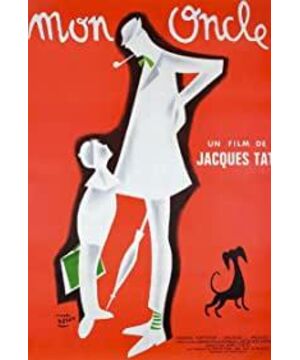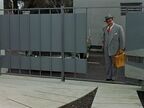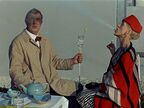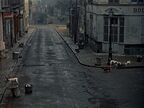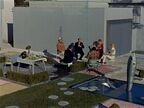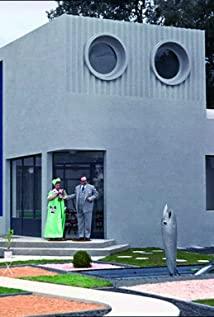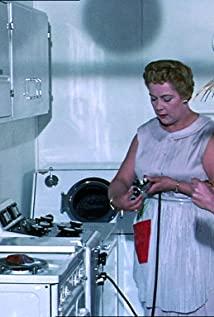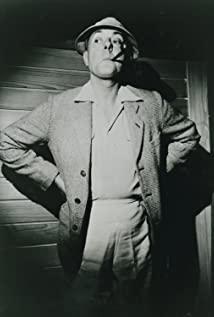Because this film focuses on criticizing the rules and order, hypocrisy and machinery produced by modern industrial civilization, as the real object of criticism, the middle and upper income classes bear the brunt. On the contrary, as the praise party, the low-income class with lower income and unable to adapt to the laws and steps of modern life will naturally have ideological and technical contradictions and conflicts with the middle and high-income class. This requires the film to reflect the shadow of different class contradictions all the time. In the film, the suburb where Mr. Hulot lives and Mr. Arber's family are distinct representatives of the low-income class and the middle-high-income class. As a representative of nature, vitality and vitality, Mr. Hulot has produced many works through his nephew Gerard and his brother-in-law's family. Contradiction, thus creating a strong conflict with the mechanized, empty, lonely, and indifferent urban school. As a child, Gerald's nature is to yearn for a vast nature and a life full of vigor and vitality, instead of living in a repressed space and living an empty life like mechanical rules all day long. It can be seen only from the nature of children that a beautiful natural life is a life suitable for human beings, and too much regulation is a limitation of human nature. We know that human nature and freedom have always been the proud topics of Western countries, and they have also become the lead for them to talk about humanitarianism in developing countries. Human nature and freedom are established on the basis of equality for everyone. The emergence of urbanization has given birth to a large number of middle and high-level families. "Hulots" cannot retain equal rights with other people as they did in primitive society. On the contrary, "Hulots" The beautiful mentality of our "being in nature" is eroded by the increasingly developed urbanization, becoming the fall of urban rules, modern machinery, emptiness and loneliness, repression and distortion, and the Mr. Arbel family is a typical representative (except Gerrard). They have a perfect grasp of the rules of making money in the new society, and the "Hulots", who they regard as inferior, are pressed by modern rules everywhere because they cannot adapt to the living environment of the "Arbeles", so that they can't even get enough to eat. displaced. The departure of Hu Luo in the film shows the tragic end of the low-income class who have no choice but to leave their homes and find another way of life because they cannot adapt to modern life. In reality, the widening gap between the rich and the poor and the high development of modern civilization make human nature, equality and freedom not as noble and great as those described in Western laws, and the human nature and free society among the people of developed Western countries can only become ideals and empty talk. (Although objectively the legal and social security systems in developed countries are relatively complete).
As analyzed by other film critics: "Mr. Hulot is only a metaphysical manifestation of the state of chaos (wherever he goes there is always chaos for a long time)." Hulot's appearance will always produce a huge conflict with the civilization of modern society. , either in the "ugly appearance" in life, or in the "chaos" in the work. Mr. Hulot secretly went to prune branches in the middle of the night, took Gerrard to the suburbs where he lived to play and tease passers-by, turned rubber pipes into various shapes of waste, and slept on an overturned sofa. Has a strong comedic effect. This is different from people in the middle and upper classes. They follow the rules, walk on the road without expression, the decorations in the home cannot be destroyed, the sofa is only used for sitting, and the home must be separated by a high wall... Hulot's these Behaviour and performance paid the price it deserved: leaving the place of residence. This is also the same as the ending of the low-income class, either huddled in the city and living a humble life, or left their hometown to find another way out. The identity and status of these people have been greatly challenged by the rise of urbanization, and the gap between them and the middle- and high-level income earners is getting bigger and bigger. In fact, throughout the world, this phenomenon is widespread, and it is not only the developed countries in the West that have such drawbacks, and even in some poor countries, the humanity and freedom of almost all people are not guaranteed. From a certain point of view, what the director wants to express is not only dissatisfaction with high modernization and yearning for a beautiful life in nature, but also a beautiful longing for ideal things such as human freedom and equality, and even a puppy can enjoy equal status.
The close scene between Gerald and his father at the end of the film gives people a glimmer of hope for the future. The developed modern society can indeed erase human nature. It is still too late to save the lost natural things while developing, and once this benign development is stabilized, it will never disappear. Even the real equality and freedom for all, which are far away in the law, will get closer and closer to reality in the face of the whole society's rescue and insistence on nature and humanity.
View more about Mon Oncle reviews


